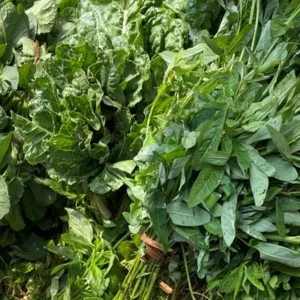Vegetables are plentiful in the lean seasons
In the lean seasons, stored food supplies are low and food prices rise. Seasonal availability calendars reveal that lean seasons are actually a peak season for many vegetable species. Creative use of vegetables as essential rather than secondary foods could be a solution for diversifying diets. What to do when local food stocks are depleted? In Africa, periods of food

Vegetables are plentiful in the lean seasons
In the lean seasons, stored food supplies are low and food prices rise. Seasonal availability calendars reveal that lean seasons are actually a peak season for many vegetable species. Creative use of vegetables as essential rather than secondary foods could be a solution for diversifying diets.
What to do when local food stocks are depleted?
In Africa, periods of food shortage (often right before the harvest) are widely considered as the ‘lean’ or ‘hungry’ season. During these months, the situation can be dire. Not only are local food supplies dwindling, food prices can also be elevated. The common response during this critical period tends to be focused on cereal imports and securing calories to meet domestic demand. By contrast, limited attention is devoted to other food groups, including dark green leafy vegetables such as amaranth or other vegetables such as tomatoes. These foods provide important sources of micronutrients vital to human health and can serve as crucial complements to the more calorie-dense staples. Yet, the simplistic focus on how to secure more staples risks overlooking the potential of local wild and cultivated vegetables for food and nutrition security during the lean seasons.

